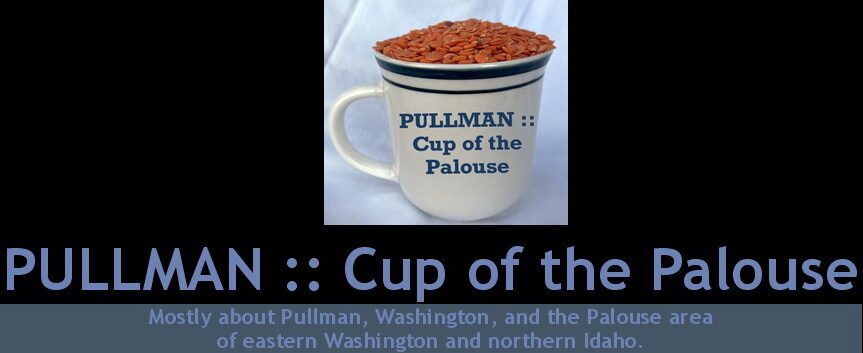PULLMAN’S
‘COUGAR BRIDGE'
Pullman's
cougars will move to new bridge
Aug. 3, 1994, Lewiston (Idaho) Tribune
PULLMAN --The cast-concrete cougars on either end of the Main Street bridge will be preserved and installed on the new bridge during Washington Highway 270 construction.
The four cats were incorporated into the bridge's design when it was built in 1938-39.
The
bridge is being demolished and replaced as part of a $7 million package of
improvements to the highway.
Al Gilson, public information officer for the Washington Department of Transportation, said the cougars will be repaired and reinstalled on 2-foot-tall pedestals to make them more visible to motorists.
Transportation department and city officials broke ground Tuesday for the work on Highway 270, also known as the Moscow-Pullman Road.
Work on the 1.4-mile stretch between Spring Street and Forest Way is expected to take 18 months.
Contractors have already begun moving equipment to the site and setting up construction barriers.
The existing bridge is actually two bridges: one over the South Fork of the Palouse River and the other over the railroad tracks.
Contractors will keep one lane open in each direction during bridge construction.
Main Street will be widened to four lanes, and a new traffic signal will be installed at Bishop Boulevard.
The signal at Stadium Way will be improved.
Left-turn lanes will be installed at Bishop, Stadium Way and Forest Way.
Weaver Construction of La Grande, Ore., is the primary contractor for the project.
The Highway 270 project was put on hold indefinitely when the 1993 Legislature took $135 million in gasoline taxes away from the transportation department and deposited the money in the state's general fund.
The project was reauthorized this year when legislators restored $94 million for road projects.
The
state will pay the full cost of road and bridge construction, but Pullman is
responsible for about $150,000 for sidewalks and installation of the Bishop
Boulevard signal.
A grant will cover about $90,000 of that, and the remainder will come from the city's budget.
:::::

.JPG)








%20News%20for%20CougGroup%20Facebook.png)
%20News%20for%20CougGroup%20Facebook.png)
%20News%20for%20CougGroup%20Facebook.png)
